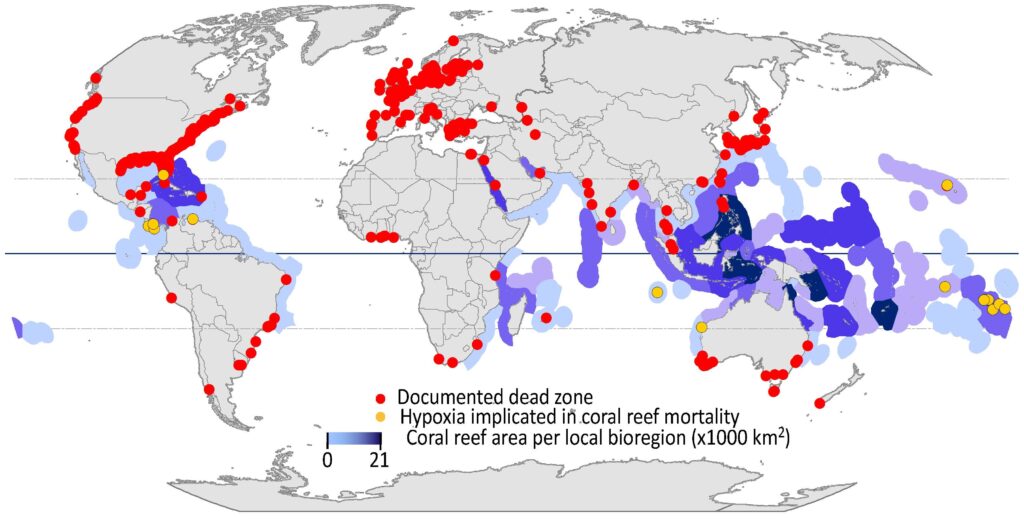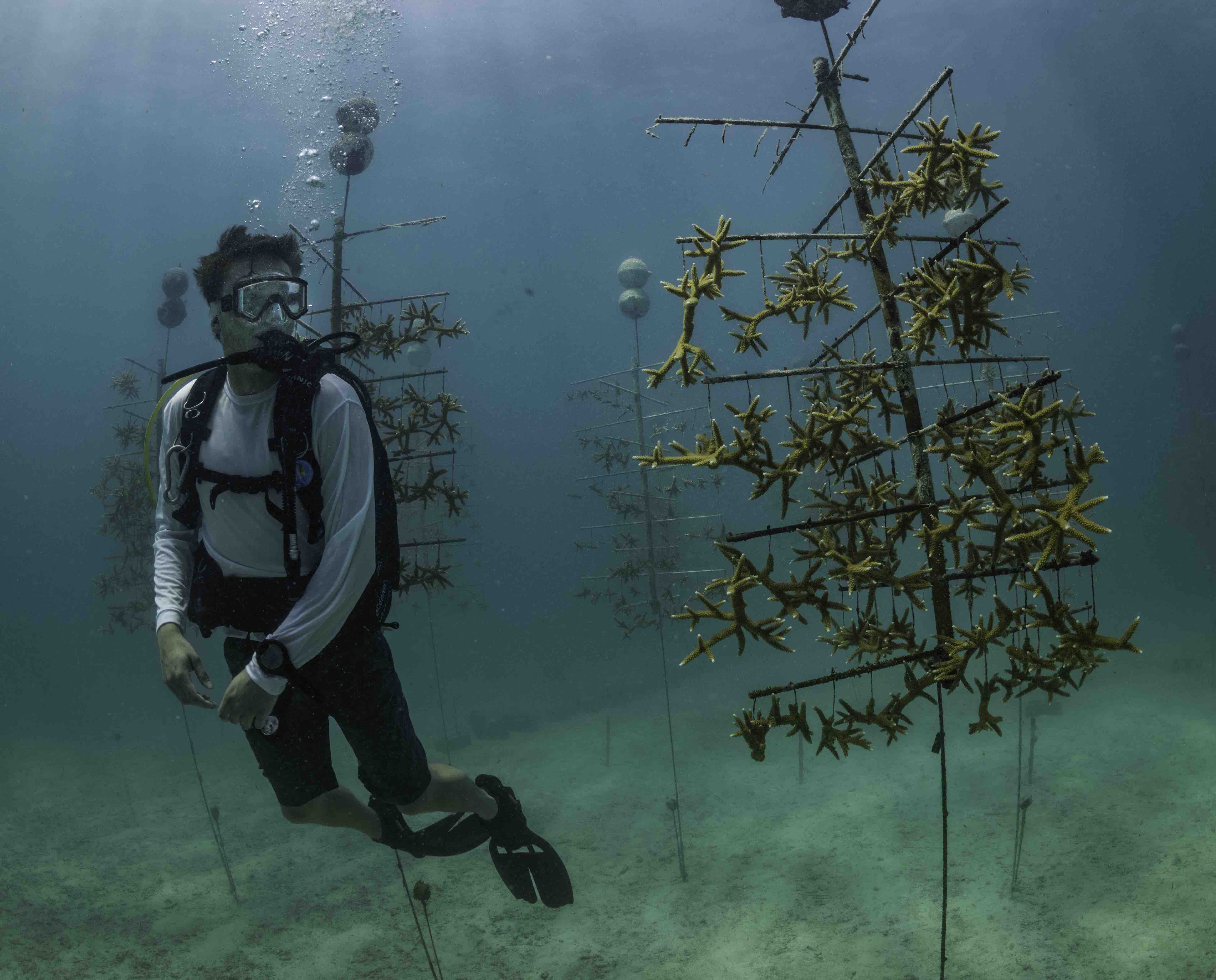We are examining the impact of low-oxygen (hypoxia) stress on coral reef ecosystems. Coral reefs are in decline, and human-assisted restoration is actively trying to reverse this trend. Our project will help improve the ability of coral reef managers and coral restoration practitioners to identify and understand the effects of hypoxia on key coral restoration species and select optimal sites in the Florida Keys for coral restoration.

Why We Care
The coral reef ecosystems of the southeast United States provide habitat, food, and shelter to hundreds of species of fish and invertebrates. Their economic role in supporting fisheries, dive/snorkeling tourism, and other recreational industries is also considerable. In addition to these valuable services, coral reefs act as barriers to protect the highly populated southeast Florida coast from waves and floods.

Hypoxia (low oxygen) poses a serious and escalating threat to marine ecosystems globally. While the impacts of hypoxia have been well characterized in temperate marine systems, they remain poorly understood for tropical coral reef ecosystems. Preliminary studies indicate that hypoxia has negative consequences for coral health and reef diversity. With many of the world’s coral reefs in decline, it is important to understand the additional threat represented by hypoxia. Human-assisted coral restoration efforts are increasing to reverse the trends of coral reef loss. Thus, understanding how hypoxia can impact the survival of corals is key to developing the best strategies for choosing restoration sites and coral species ro maximize the likelihood of success.
What We Are Doing
We are providing the first systematic assessment of the response of corals and coral reefs to hypoxic stress. Our goal is to support coral reef managers and coral restoration practitioners in coral reef conservation by providing them with the tools to understand and identify the impacts of hypoxia and select appropriate sites for restoration that minimize these impacts.
We will establish the state of knowledge on the impacts of hypoxia on coral reefs globally by convening a working group to synthesize existing research, identify knowledge gaps, and establish a collaborative network of coral reef stakeholders. We will identify indicator species and sublethal signs of hypoxic stress in corals by conducting lab tests on how hypoxia and other stressors impact coral restoration species (e.g., Acropora cervicornis, Montastraea cavernosa, Orbicella faveolata, Pseudodiploria clivosa, Siderastrea radians, and Porities astreoides). In addition to lab studies, we will identify water quality criteria for healthy coral reefs and survey water quality and coral condition at coral restoration sites in the Florida Keys across a gradient (offshore to inshore) spanning various reef habitats. The water quality criteria and the thresholds of the coral restoration species to hypoxia will improve coral restoration by prioritizing candidate species and sites for coral rearing and restoration activities.
This project is part of the NCCOS Coastal Hypoxia Research Program, and is led by Andrew Altieri at the University of Florida in collaboration with Valerie Paul and Maggie Johnson of the Smithsonian Institution. To ensure that our project and its outputs are useful to managers, we will work closely with federal and Florida state resource managers and coral restoration practitioners to translate our results.
